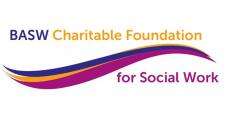BASW Student Blog | Own your own placement training

Placements are a 'journey', and the 'treasure' of social work. These are the opening and closing remarks of the training 'Own your placement' led by Siobhan Maclean. Placements are the starting point of social work practice for many students although many other students and apprentices would have had some social care experience prior to and during their social work training.
Maclean likened students to a 'map maker' meaning that students ought to map out their journeys and determine how best to get to their destinations or placement goals. Indeed, students will be assessed on various aspects of the journey. I believe this metaphor illustrates that students have some degree of power and control over certain aspects of their placement. One aspect of my first level placement I enjoyed ‘mapping’ out was my initial shadowing experiences. I received guidance from my placement team on key teams to shadow, but I was able to prioritise areas I was particularly curious about. Some of these shadowing experiences became a major part of my learning during the placement.
One model student can use to reflect and prepare for placement is the PREPARED Model (Maclean and Roberts, 2021) which is a 'reflection for action' model. PREPARED stands for Pause to Reflect on your Emotions, the Purpose of your work and the Actions you need to take. Ask yourself are you Ready? What do you know about the Environment and context? What Decisions do you need to make? The image below highlights a range of opportunities that may be available to students. Maclean advises students to research their practice area. This helped me to prepare for my first level placement in an adult mental health team. I learnt more about the placement team through teaching staff and colleagues, course mates, job adverts, the organisation website and blogs by social workers which I found online.
As an apprentice, I had experience of working in social work teams prior to commencing my course and indeed my first level placement. Some keys differences between working as an apprentice in a social work team and being on a placement are the opportunity to write reflectively, receive feedback and practice guidance, and apply theory and research to the work you do more systematically. Indeed, placement is about linking theory and the learning at university and applying them in practice with children and families.
Most universities and institutions will have a placement handbook that covers every aspect of the placement and what to do in exceptional circumstances. During the webinar, we were encouraged to familiarise ourselves with the placement handbook. The image below from the session captures the general placement experience England.
Participants were cautioned to remain flexible with their journeys and plans as it is not usually a straight road. There might be challenges with induction, staff leave/absences which may impact on you, organisational changes and changes in the process and ways of working, changes in one's personal life, and indeed wider events that may impact on your placement experiences.
Another useful metaphor during the session was supervision as ‘passports. If the placement is viewed as a journey, then a passport is an essential part of the journey. Supervision is aligned with the placement journey and provides students with an opportunity to make sense of their learning, discuss theories and plan for the next steps. It also allows for the exploration of the student’s identity and the emotional context of practice. The British Association of Social Workers’ Professional Capabilities Framework (PCF) emphasise the importance of supervision 'and other support to reflect on our work and sustain our practice and wellbeing' (PCF 6, Critical Reflection and Analysis). The Social Worker Apprenticeship Standards also require students to 'recognise professional limitations and how and when to seek advice from a range of sources including named supervisors, senior social workers, and other professionals' IfATE (2023).
There are several ways in which students can record their learning experiences and demonstrate the standards are being met. Students will be required to meet the PCF standards relevant to their level of placement. Some students might choose to highlight a piece of work and link to the relevant PCF, Social Work England professional standard, or apprenticeship standard and vice versa. During the session we learnt about the SHARED model which can be used for keeping track of placement learning. The SHARED model is s a multi-sensory approach to practice and learning which explores Seeing, Hearing, Action, Reading, Evaluation and Decision. The image below highlights how experiences can be captured using this model.
Participants had the opportunity to ask questions and share their experiences. Anxieties around starting placements were discussed by some participants. We learnt that this is not uncommon and is associated with being a newcomer in a new learning environment.
Details of further sessions in the BASW Foundation Student Development programme can be found here.
References and further reading
- British Association of Social Workers (2018) Professional capabilities framework. Available at https://basw.co.uk/training-cpd/professional-capabilities-framework-pcf. (Accessed: 20 November 2024).
- IfATE (2023) Available at: https://www.instituteforapprenticeships.org/apprenticeship-standards/social-worker-integrated-degree-v1-1 (Accessed: 20 November 2024)
- Maclean S., Finch J. and Tedam P. (2018) Share - A New Model for Social Work. Lichfield, Staffs: Kirwin Maclean Associates Ltd.
- My social work placement- https://youtu.be/10ttup_1i9o?feature=shared
